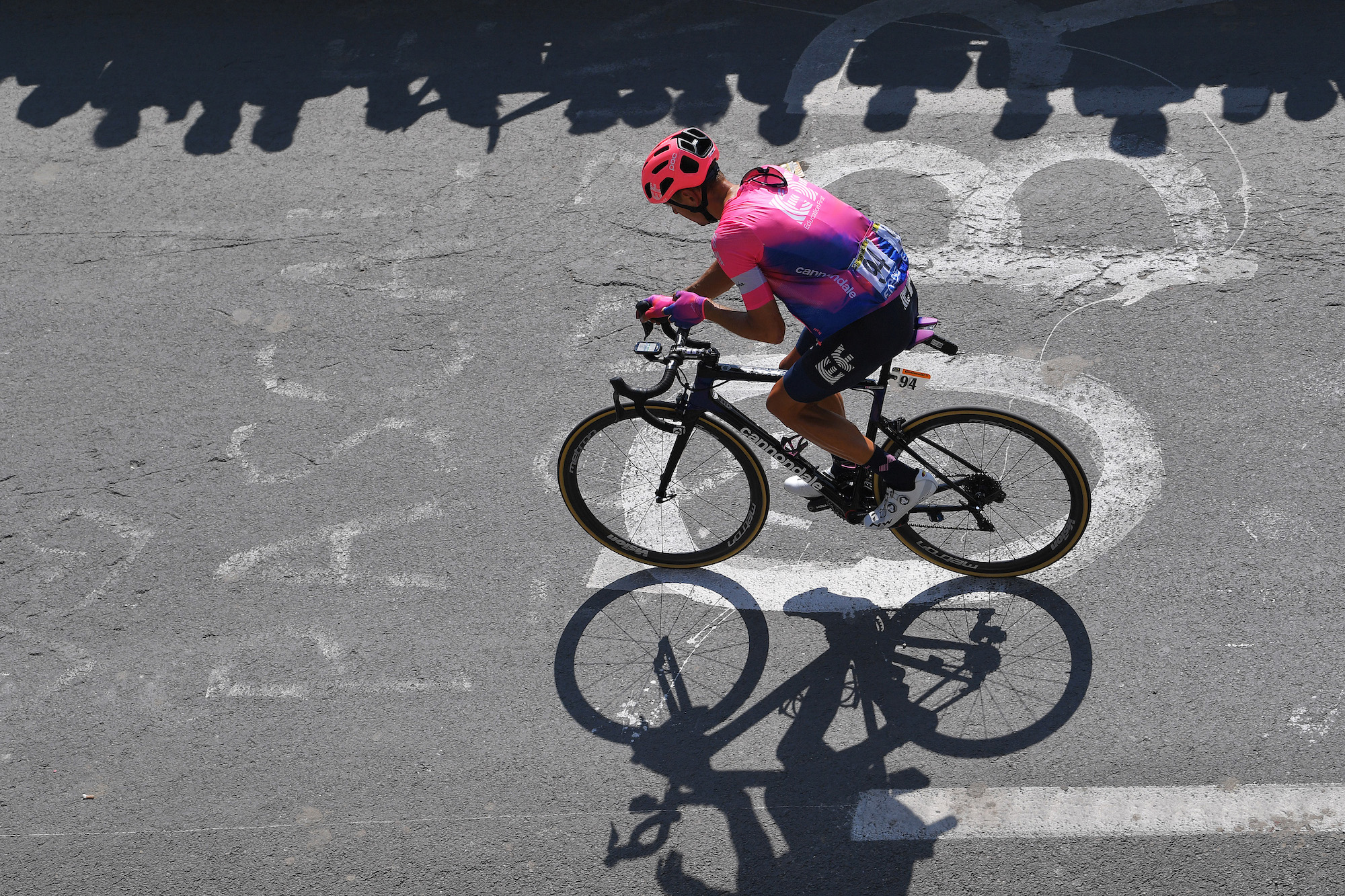'It's going to take its toll on everyone': Peloton wary ahead of 40 degree heat in third week of Tour de France
Jakob Fuglsang has said soaring temperatures mean small mistakes can result in paying a high price


Tanel Kangert of EF Education first on stage 14 of the Tour de France 2019 (Photo by Tim de Waele/Getty Images)
The expected heat wave of 40°C temperatures will "take its toll on everyone" in the Tour de France peloton this coming week.
Riders have expressed concerned ahead of the second rest day and final week of racing before Paris.
"It's pretty humid and of course, it takes a toll on everybody and you have to be careful," Steven Kruijswijk (Jumbo-Visma) told Cycling Weekly.
"I did the Vuelta a few times, and we had the same there and I'm not complaining when it's really warm. I'd rather have it like this than freezing temperatures."
The mercury in Nîmes will hover just below 40 at 39°C and hardly allow a comfortable rest day on Monday. It eases, but just by one or two degrees over the following days.
"With a small mistake you can pay a high price so if it's really going to get that that warm then it's going to be an extra thing to be concerned about," Jakob Fuglsang (Team Astana) said.
The latest race content, interviews, features, reviews and expert buying guides, direct to your inbox!
"When I was there doing the recon, there was also these kinds of temperatures. At least when the racing gets above one thousand metres it's a bit cooler so that's the only thing you can be happy about."
An African jet-stream saw temperatures soar in the last week of June throughout southern Europe. The same changing winds could bring something similar again.
"The risk is multiplied in high temperatures and you know, racing in the 20s compared to racing in nearly the 40s. It's a big, big difference and a small mistake can lead to disaster," Mitchelton-Scott sports director Matt White said.
"The lucky thing is one of the days is a rest day, so you can hide pretty easily. And the other one is the flat stage to Nîmes. It's always traditionally hot there but I think it's easier to manage on the flat as well. Just that it's going to be easier to have the helpers drop back for water bottles."
Last year, White's rider Adam Yates suffered due to de-hydration. This year, they are yet to understand what went wrong.
The fans could pay too, a hot day could mean the riders are less inclined to risk it with an attack and ride easier when possible.
"I've found it quite negatively impacts the racing because there's not much you can really do," Tom Southam, EF Education First sports director, said. "Because everybody's that little bit more frightened of making an effort and then getting into trouble.
"We've seen it a few times in the Tour Down Under. When it gets really hot and then nothing happens, and those are short stages. These stages are long and hot, even on the Tourmalet, it was still hot at the top."
"It's going to take its toll on everyone, it's already been hot, we saw a lot of guys getting caught out on the Tourmalet," said stage nine winner, Daryl Impey (Mitchelton-Scott).
"It's definitely gonna change the race a little bit. It's already been hard for everybody."
Gregor Brown is an experienced cycling journalist, based in Florence, Italy. He has covered races all over the world for over a decade - following the Giro, Tour de France, and every major race since 2006. His love of cycling began with freestyle and BMX, before the 1998 Tour de France led him to a deep appreciation of the road racing season.
